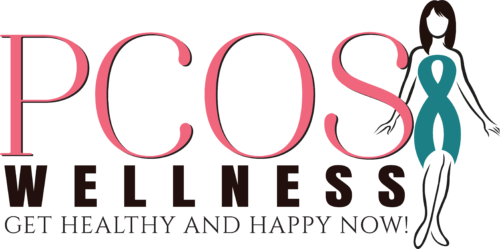
PCOS and Infertility: What to Do When Your Body Won’t Mind You!
PCOS and Infertility
Everyone’s telling you to “just relax and you’ll get pregnant,” or “take a vacation and it’ll happen.” Isn’t that a huge pressure, besides the basic fact that getting pregnant hasn’t proven to be so easy for you, because you’ve got PCOS? Getting pregnant can be so frustrating when it involves medical procedures, carefully timed intercourse, self-tests and monitoring, medication, and the like. The good news is, even when it seems like your body just won’t do what you want it to do, there are relatively simple and inexpensive things you can do on your own to support yourself in your fertility journey.
If you’ve been dealing with infertility for a while, you’ve likely tried or at least considered some alternative medicine or holistic health practices that you hope will help you conceive. In my health psychology practice, I always suggest that people look at the whole range of medical options, from Western medicine to Eastern medicine and anything in between. Here’s why you should consider some of the more common approaches to decreasing stress and improving overall health, which include:
-
- Acupuncture is an ancient healing art, part of the system of Traditional Oriental Medicine. It has been used successfully for thousands of years to enhance fertility; you may even find that your physician is able to offer you a referral. Acupuncture is nearly painless — in spite of the needles — and works in conjunction with your traditional treatments. Many acupuncturists also offer nutritional support. Most larger communities have at least one acupuncture school, and their student clinics offer carefully supervised sessions for as little as $20/treatment.
-
- Nutrition — Decreasing or eliminating caffeine, refined sugar, and refined flour will give your body a rest, reduce stress on your digestive system, enhance your immunity, and make your body an optimally healthy place for both you and a baby. If you’re saying “yeah, yeah, yeah, I know all that — and it’s too overwhelming” — start today with a small change, like switching out regular coffee for decaf, or trading in a soda for some iced herbal tea. Your nerves will thank you too. Women with PCOS are much more prone to anxiety and depression, and improving nutrition is an important part of healing your mental health as well as your physical health.
-
- Yoga is another traditional dating back thousands of years. Yoga is said to massage and stimulate or “tonify” the internal organs, thereby leading to increased health. The slower-paced forms of yoga, such as hatha yoga, or yin yoga, are relaxing practices. But in my opinion, the best thing about yoga is that it helps you love and accept your body, precisely where it is today — not where you hope it will be. If you’re daunted by those fancy yoga studios, head on over to your nearest YMCA or other gym for some great introductory classes. There are also a number of studies proving that yoga is helpful specifically to women with PCOS!
-
- Meditation can be as simple as closing your eyes and focusing on the sound of your own breath for just three to five minutes. It can also be a complex and evolving process, if you choose to expand your practice. Regulating your breathing, clearing your mind, and giving yourself time for introspection are all benefits of meditation. If you want more information, do a search for the terms “meditation” or “the relaxation response.” There are also several great free or low-cost apps you can download that will walk you through meditation. I like Simply Being, Meditation Timer, Insight Timer, Calm, Pacifica, Simple Habit, and Headspace. If you don’t like the first one you try, keep trying – there are a lot of different styles, voices, personalities, and tones.
-
- Positive Thinking/Mindfulness/Visualization — although these are all distinct techniques, the overlap is that they are conscious ways of re-orienting yourself towards remaining in the present, focusing on what is, and using the power of your mind to create the future — or at least improve your experience of the future. As with meditation, the internet is full of information on these techniques, or you may wish to consult with a mental health clinician who utilizes such techniques in her infertility practice. I’m hopeful that trying meditation, as described above, will serve as the gateway to curiosity about other ways to decrease stress and improve physical and mental well-being.
Optimizing fertility is an activity in which you, the patient, play a very active role. Of course your doctor will want to know what other things you’re doing to support your fertility, but you can start right now to take steps to improve your overall physical health and state of mind, thereby reducing the stress actively, instead of just hoping that it will happen “somehow.”
Dr. Gretchen Kubacky is a health psychologist in private practice in West Los Angeles. She specializes in counseling women and couples who are coping with infertility, PCOS, and related endocrine disorders. If you would like to learn more about Dr. Kubacky or her practice, or obtain referrals in the Los Angeles area, please visit her website at www.DrGretchenKubacky.com. She has also created a special website with much more information just for PCOS: www.PCOSwellness.com. You can also follow her on Twitter @askdrgretchen.
Session expired
Please log in again. The login page will open in a new tab. After logging in you can close it and return to this page.
